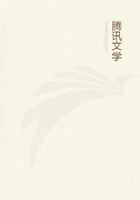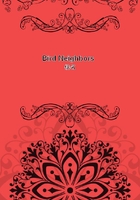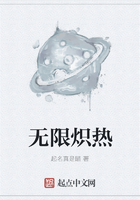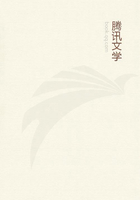Descartes here arrives at a dividing line, at an unknown relationship; the Notion of cause is reached, and this is a thought indeed, but a determinate thought. Spinoza says in his explanation, “That the conceptions contain more or less reality, and those moments have just as much evidence as thought itself, because they not only, say that we think, but how we think.” These determinate modes as differences in the simplicity of thought, had, however, to be demonstrated. Spinoza adds to this step in advance that “The degrees of reality which we perceive in ideas are not in the ideas in as far as they are considered merely as kinds of thought, but in so far as the one represents a substance and the other a mere mode of substance, or, in a word, in so far as they are considered as conceptions of things.” “The objective reality of Notions (i.e., the entity of what is represented in so far as it is in the Notion), "demands a first cause in which the same reality is contained not merely objectively” (that is to say in the Notion), “but likewise formally or even eminenter -formally, that is perfectly likewise: eminenter, more perfectly. For there must at least be as much in the cause as in the effect.” “The existence of God, is known immediately” - a priori -“from the contemplation of His nature. To say that anything is contained in the nature or in the Notion of a thing is tantamount to saying that it is true: existence is directly contained in the Notion of God. Hence it is quite true to say of Him that existence pertains of necessity to Him. There is implied in the Notion of every particular thing either a possible or a necessary existence - a necessary existence in the Notion of God, i.e. of the absolutely perfect Being, for else He would be conceived as imperfect.” (19)Descartes likewise argues after this manner: “Problem: to prove a posteriori from the mere Notion within us the existence of God. The objective reality of a Notion demands a cause in which the same reality is not merely contained objectively” (as in the finite), “but formally” (freely, purely for itself, outside of us) “or eminenter” (as original). (Axiom.) “We now have a Notion of God, but His objective reality is neither formally nor eminenter contained within us, and it can thus be only in God Himself.” (20) Consequently we see that with Descartes this Idea is an hypothesis. Now we should say we find this highest Idea in us. If we then ask whether this Idea exists, why, this is the Idea, that existence is asserted with it. To say that it is only a conception is to contradict the meaning of this conception. But here it is unsatisfactory to find that the conception is introduced thus: ‘We have this conception,’ and to find that it consequently appears like an hypothesis. In such a case it is not proved of this content in itself that it determines itself into this unity of thought and Being. In the form of God no other conception is thus here given than that contained in Cogito, ergo sum, wherein Being and thought are inseparably bound up - though now in the form of a conception which I possess within me. The whole content of this conception, the Almighty, All-wise, &c., are predicates which do not make their appearance until later; the content is simply the content of the Idea bound up with existence. Hence we see these determinations following one another in an empirical manner, and not philosophically proved -thus giving us an example of how in a priori metaphysics generally hypotheses of conceptions are brought in, and these become objects of thought, just as happens in empiricism with investigations, observations, and experiences.
Descartes then proceeds: “Mind is the more convinced of this when it notices that it discovers within itself the conception of no other thing wherein existence is necessarily implied. From this it will perceive that that idea of highest reality is not imagined by it; it is not chimerical, but a true and unalterable fact which cannot do otherwise than exist, seeing that existence is necessarily involved in it. Our prejudices hinder us from apprehending this with ease, for we are accustomed to distinguish in all other things the essence” (the Notion) “from the existence.” Respecting the assertion that thought is not inseparable from existence, the common way of talking is as follows:
‘If what men think really existed, things would be different.’ But in saying this men do not take into account that what is spoken of in this way is always a particular content, and that in it the essential nature of the finality of things simply signifies the fact that Notion and Being are separable.
But how can one argue from finite things to the infinite? “This Notion,” Descartes continues, “is furthermore not made by us.” It is now declared to be an eternal truth which is revealed in us.
“We do not find in ourselves the perfections which are contained in this conception. Thus we are certain that a first cause in which is all perfection, i.e., God as really existent, has given them to us;for it is certain to us that from nothing, nothing arises” (according to Boehme God derived the material of the world from Himself), “and what is perfect cannot be the effect of anything imperfect. From Him we must thus in true science deduce all created things.” (21) With the proof of the existence of God the validity of and evidence for all truth in its origin is immediately established. God as First Cause is Being-for-self, the reality which is not merely entity or existence in thought. An existence such as this first cause (which is not what we know as a thing) rests in the Notion of the not-I, not of each determinate thing - since these as determinate are negations -but only in the Notion of pure existence or the perfect cause. It is the cause of the truth of ideas, for the aspect that it represents is that of their Being.

